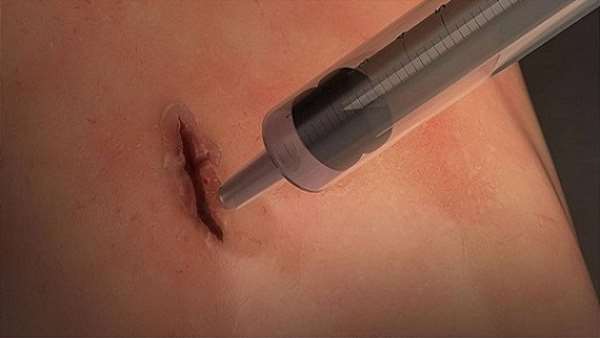Research directed by Iranian scientists resulted in: development of elastic surgical glue that seals wounds in 60 seconds
A research team supervised by “Nasim Annabi”, Iranian scientist and assistant professor of Northeastern University and a researcher affiliated to Harvard Medical School and Harvard-MIT Division of Health Sciences and Technology, and “Ali Khademhosseini”, Iranian professor at Harvard Medical School and Harvard-MIT Division of Health Sciences and Technology, has successfully developed an elastic surgical glue that can sealing up critical wounds in the skin or the organs, in 60 seconds, without the need for staples or sutures.
A research team supervised by “Nasim Annabi”, Iranian scientist and assistant professor of Northeastern University and a researcher affiliated to Harvard Medical School and Harvard-MIT Division of Health Sciences and Technology, and “Ali Khademhosseini”, Iranian professor at Harvard Medical School and Harvard-MIT Division of Health Sciences and Technology, has successfully developed an elastic surgical glue that can sealing up critical wounds in the skin or the organs, in 60 seconds, without the need for staples or sutures.
The gel is based on methacryloyl-substituted tropoelastin (MeTro), a hybrid elastic protein, and can be squirted onto internal and external wounds to seal them up and advance healing. The superiority of MeTro formulation is that, as soon as it comes in contact with tissue surfaces, it solidifies into a gel-like phase without running away. Once in place, the sealant is put under ultraviolet light to be secured and kept tightly bond and interlock with structures on the tissue surface. Another advantage of MeTro glue is that it can heal up wounds in half the time compared with wounds treated with stitches or staples. In addition, the sealant is biodegradable and so it can be modified to last for a certain amount of time (between hours and months) in place depending on the type of injury. So far, this science-based product has been successfully tested on rodent arteries and lungs, and pig lungs, while human trials will soon start.
This product has resulted from years of work of the Khademhosseini’s team at the Harvard Medical School on how to translate MeTro gels into a regenerative therapeutic for repairing the wounds. This glue can replace the conventional stitches or staples; however, the benefits of this product is not limited to medical centers and surgery rooms, but owing to rapid adhesive effects, it can be used for treating serious internal wounds at emergency sites such as following car accidents and in war zones.
The results of this research are published in "Science Translational Medicine":
http://stm.sciencemag.org/content/9/410/eaai7466





ارسال به دوستان